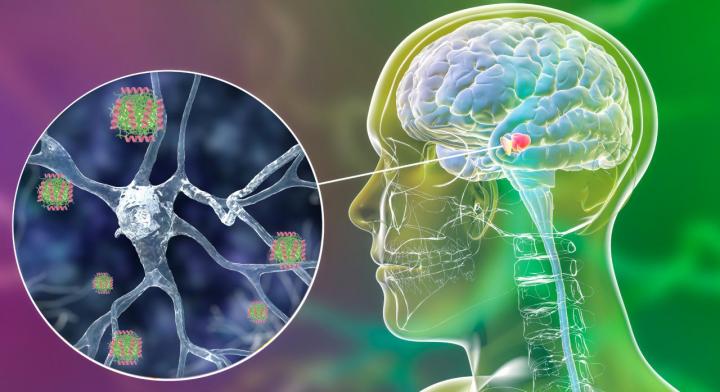The death of neurons specialised in the synthesis of dopamine, one of the brain’s main neurotransmissors, deteriorates the motor and cognitive capacities of those with Parkinson’s disease. The loss of these neurons is related to alpha-synuclein aggregation. Recent studies show that oligomers, the initial aggregates of this protein, are the most pathogenic forms of α-synuclein and are responsible for the spreading of the disease in the brain.
Therefore, one of the more promising approaches in fighting this disorder consists in neutralising these oligomers and, thus, slow down the pathological progression. However, the fact that these aggregates do not present a defined structure and that they are transitory by nature makes it extremely difficult to identify molecules that bind with enough strength as to explore any clinical application.
A scientific collaboration between researchers from the Institute for Biotechnology and Biomedicine (IBB) at the Universitat Autònoma de Barcelona (UAB) and from the Instituto de Biocomputación y Física de Sistemas Complejos (BIFI) of the Universidad de Zaragoza (UniZar) now has been able to identify a human endogenous peptide which strongly and specifically attaches to the α-synuclein oligomers, thus avoiding their aggregation and blocking their neurotoxicity, two processes closely related to the neurodegenerative decline of Parkinson’s disease. The identification and study of the peptide, called LL-37, was recently published in Nature Communications.
“LL-37 interacts with the toxic alpha-synuclein oligomers in a selective manner and with a strength superior to that of any peptide previously described, equivalent to the strength exhibited by antibodies. It inhibits aggregation at very low concentrations and protects neuronal cells from being damaged”, researchers point out.
They add that, “LL-37 is found naturally in the human organism, both in the brain and in the intestine, organs in which α-synuclein aggregation takes place in Parkinson’s disease. This suggests that LL-37’s activity might respond to a mechanism developed by the body itself as a means to naturally fight this disease.”
Encouraged by this idea, researchers now want to study how its expression can be regulated and if this strategy can become a safe therapy with the potential of influencing the course of the disease. “There is a possibility that a therapy for Parkinson’s disease already lies in our interior and that it only needs to be activated correctly”, states Salvador Ventura, researcher at the IBB and coordinator of the study.
The identification of LL-37 was conducted under the framework of a research analysing the structure and characteristics of pathogenic oligomers with the aim of neutralising them in a specific manner. The analyses conducted demonstrate that helical peptides with a hydrophobic side and another positively charged side are ideal for this type of activity. The trials allowed researchers to identify three molecules with anti-aggregation activity: in addition to the human molecule, a second peptide present in bacteria and a third artificially made molecule were identified.
In addition to representing a possible therapeutic route for Parkinson’s disease and other synuclein pathologies, the molecules identified in the study are promising tools for its diagnosis, given that they discriminate between functional and toxic α-synuclein species.
“Until now there were no molecules capable of selectively and efficiently identifying toxic α-synuclein aggregates; the peptides we present on these issues are unique and, therefore, have great potential as diagnostic and prognostic tools,” says study co-coordinator Nunilo Cremades, researcher at BIFI-UniZar.
In the study, over 25,000 human peptides were computationally analysed, and single molecule spectroscopy methods, as well as protein engineering, were applied, in addition to cell cultures in vitro using toxic oligomers.
Participating in the study were researchers from the IBB-UAB and the Department of Biochemistry and Molecular Biology at the UAB Jaime Santos (first author of the article), Irantzu Pallarès and Salvador Ventura (co-coordinators of the study), members of the “Protein Folding and Conformational Diseases” group; and BIFI-UniZar researchers Pablo Gracia (second author of the article) and Nunilo Cremades (co-coordinator of the study, predoctoral researcher and lead researcher, respectively, of the “Amyloid Protein Misfolding and Aggregation” NEUROMOL group from the BIFI-Unizar.
###
Media Contact
María Jesús Delgado
[email protected]
Original Source
https:/
Related Journal Article
http://dx.





